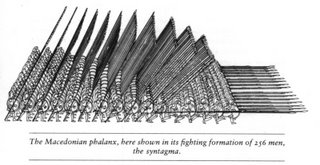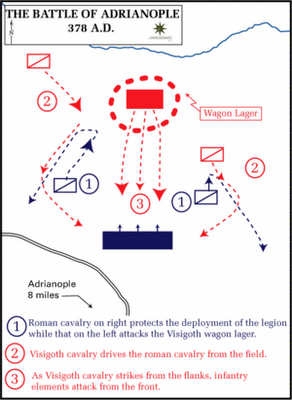
phalanx - noun - a group of heavily armed infantry formed in ranks and files close and deep with shields joined and long spears overlapping.
Inspired by today's word 'legion', I couldn't help but think quickly to come up with a similar military word. Indeed, I'm fascinated with ancient military weapons and tactics. I personally believe we have evolved to a point where warfare is 'clean' in so far as innocent bystanders are not targets and killing them is a veritable crime. So war has become a common occurrence, but we don't call it that. We call it military action. War is an atrocity. It should be fought with shields, spears and swords, up close so you know the man (or woman) you are killing. Raping and pillaging should be allowed as spoils to the victor. In such a climate, war once again becomes dirty and it's use as an extension of political or economic power becomes less commonplace. But I digress. Here is a quote which applies to today's word:
“Now of those, who dare, abiding one beside another, to advance to the close fray, and the foremost champions, fewer die, and they save the people in the rear; but in men that fear, all excellence is lost. No one could ever in words go through those several ills, which befall a man, if he has been actuated by cowardice. For ‘tis grievous to wound in the rear the back of a flying man in hostile war. Shameful too is a corpse lying low in the dust, wounded behind in the back by the point of a spear.” [Tyrtaeus: The War Songs Of Tyrtaeus]
